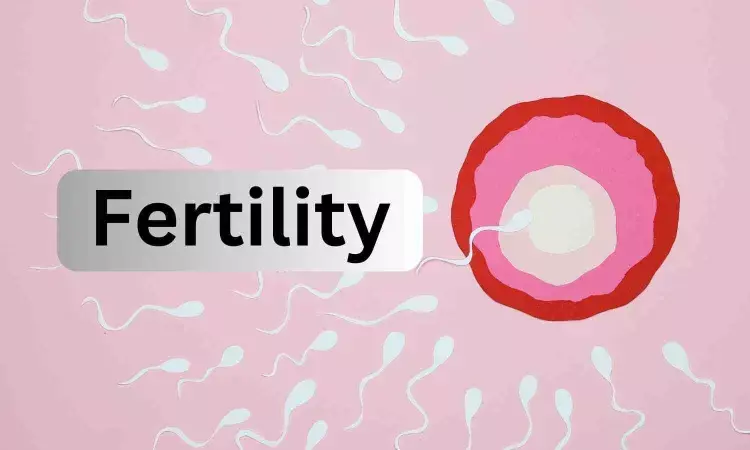- Home
- Medical news & Guidelines
- Anesthesiology
- Cardiology and CTVS
- Critical Care
- Dentistry
- Dermatology
- Diabetes and Endocrinology
- ENT
- Gastroenterology
- Medicine
- Nephrology
- Neurology
- Obstretics-Gynaecology
- Oncology
- Ophthalmology
- Orthopaedics
- Pediatrics-Neonatology
- Psychiatry
- Pulmonology
- Radiology
- Surgery
- Urology
- Laboratory Medicine
- Diet
- Nursing
- Paramedical
- Physiotherapy
- Health news
- Fact Check
- Bone Health Fact Check
- Brain Health Fact Check
- Cancer Related Fact Check
- Child Care Fact Check
- Dental and oral health fact check
- Diabetes and metabolic health fact check
- Diet and Nutrition Fact Check
- Eye and ENT Care Fact Check
- Fitness fact check
- Gut health fact check
- Heart health fact check
- Kidney health fact check
- Medical education fact check
- Men's health fact check
- Respiratory fact check
- Skin and hair care fact check
- Vaccine and Immunization fact check
- Women's health fact check
- AYUSH
- State News
- Andaman and Nicobar Islands
- Andhra Pradesh
- Arunachal Pradesh
- Assam
- Bihar
- Chandigarh
- Chattisgarh
- Dadra and Nagar Haveli
- Daman and Diu
- Delhi
- Goa
- Gujarat
- Haryana
- Himachal Pradesh
- Jammu & Kashmir
- Jharkhand
- Karnataka
- Kerala
- Ladakh
- Lakshadweep
- Madhya Pradesh
- Maharashtra
- Manipur
- Meghalaya
- Mizoram
- Nagaland
- Odisha
- Puducherry
- Punjab
- Rajasthan
- Sikkim
- Tamil Nadu
- Telangana
- Tripura
- Uttar Pradesh
- Uttrakhand
- West Bengal
- Medical Education
- Industry
Does fertility affect a woman's body odor?

The researchers combined two methods to test whether and how body odour changes during the female cycle and whether men perceive it differently depending on the day of the cycle. They took samples of underarm odour from 29 women on ten days spread over a menstrual cycle, with more samples taken during the fertile period. Ninety-one men were then asked to rate the odour samples. In 16 of the women, the research team also looked at whether the chemical composition of the odour samples differed between the women’s fertile and infertile days.
The results of both tests pointed in the same direction: there was no evidence from the odour ratings that men found a woman’s odour more attractive – and therefore that they preferred her – on her fertile days than on her infertile days. Chemical analysis of the odour samples also showed no correlation between the composition of the underarm odour and the women’s current fertility status.
New results from combined and more stringent methods
There is some controversy in the research literature about the theory that a woman’s body odour smells better to men around ovulation than on infertile days. The findings from Leipzig and Göttingen now add to our understanding of body odour and hormonal influences. Madita Zetzsche, biologist and first author of the study, explains that the results of her research differ from some previous studies because of the combined and more robust methodology.
“The female cycle is an incredibly complex process. This makes research into the effects associated with the cycle very challenging, especially when it comes to finding the right methodology,” explains Zetzsche. For example, in most previous studies, women’s fertile days were determined based only on the length of their cycle, whereas the new analysis also confirmed the day of ovulation using hormones, which is much more accurate. “We now have more robust methods at our disposal. This means that it is possible that newer and more methodologically rigorous studies will come to different conclusions than those of ten years ago.”
Zetzsche adds that there are still no agreed methodological standards for investigating cycle-related perceptual effects, such as changes in body odour perception between fertile and non-fertile days. Professor Lars Penke, a psychologist at the University of Göttingen, led the perceptual analysis in the research project. He said: “We hope that the results of our study will help to keep the dialogue in this field of research open and that further collaboration will pave the way for a robust methodological standard. This would also help us to re-examine the findings of older studies.”
More in-depth research into the chemical and evolutionary aspects of body odour
The research team sees its new study as an important contribution to the question of how and whether changes in body odour can be detected chemically, a question that has remained unanswered for decades. Professor Anja Widdig, a biologist from Leipzig University who led the chemical analysis, says: “We hope that this study will inspire further research that looks more closely at the chemical component of body odour.” Evolutionary issues are another focus of the research. “In some non-human primates, my team and I have managed to demonstrate a link between body odour and fertility. How this phenomenon has developed in the course of human evolution is therefore of great interest to us.”
Reference:
Zetzsche Madita, Weiß Brigitte M., Kücklich Marlen, Stern Julia, Birkemeyer Claudia, Widdig Anja and Penke Lars 2024Combined perceptual and chemical analyses show no compelling evidence for ovulatory cycle shifts in women’s axillary odourProc. R. Soc. B.29120232712 http://doi.org/10.1098/rspb.2023.2712
Dr Kamal Kant Kohli-MBBS, DTCD- a chest specialist with more than 30 years of practice and a flair for writing clinical articles, Dr Kamal Kant Kohli joined Medical Dialogues as a Chief Editor of Medical News. Besides writing articles, as an editor, he proofreads and verifies all the medical content published on Medical Dialogues including those coming from journals, studies,medical conferences,guidelines etc. Email: drkohli@medicaldialogues.in. Contact no. 011-43720751


